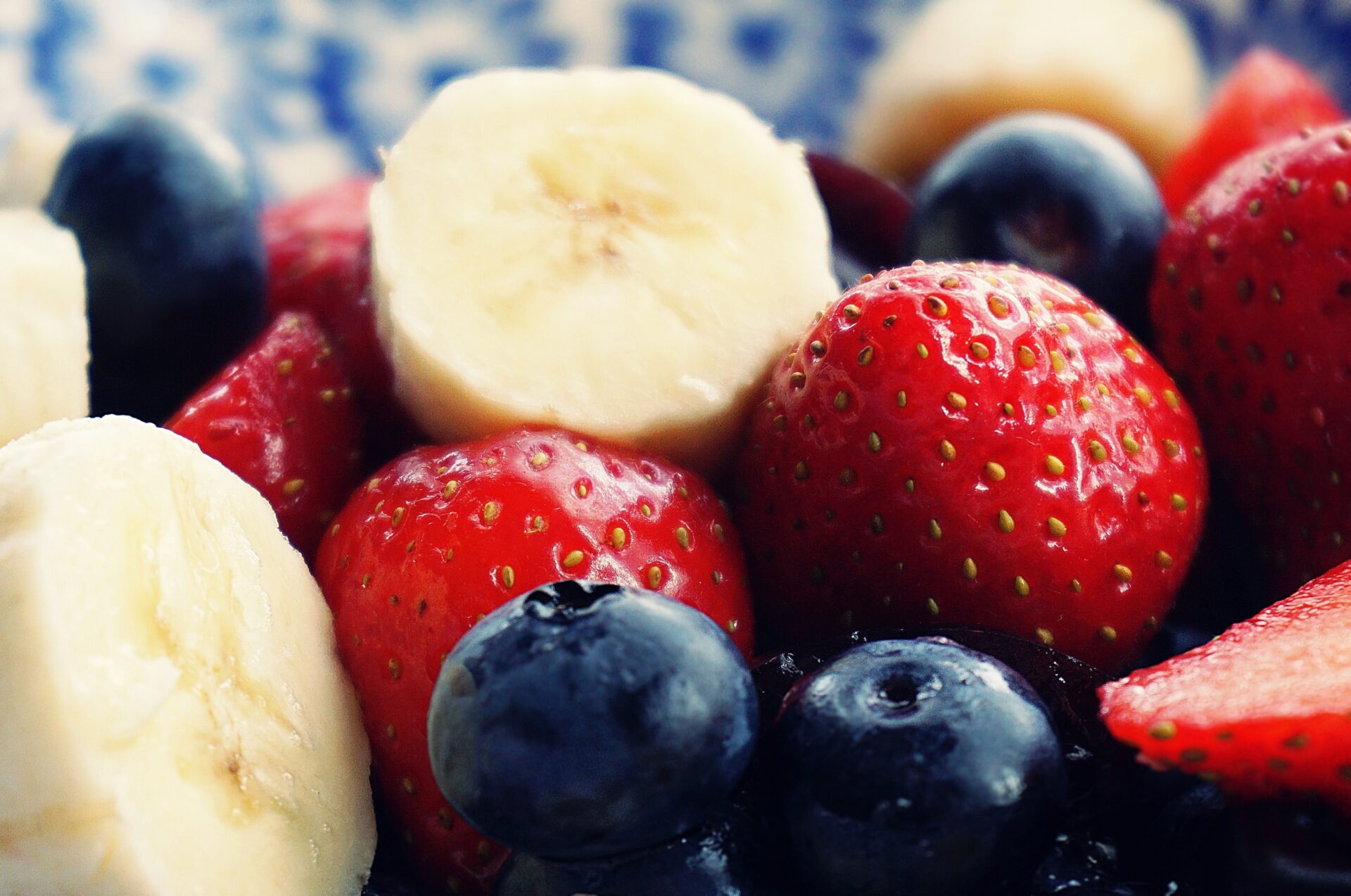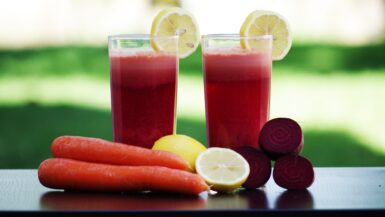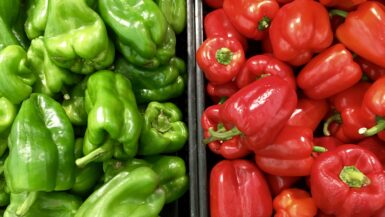Antioxidants are a buzzword in the world of nutrition and health. They are often touted as essential components of a healthy diet, and for good reason. These compounds are found in a variety of foods and play a critical role in protecting your body from damage caused by free radicals. But what exactly are antioxidants, and how do they work? In this article, we will explore the science behind antioxidants and their role in maintaining a healthy diet. We will also discuss the best sources of these compounds and how to incorporate them into your daily meals. So, grab a cup of green tea (a great source of antioxidants!) and let’s dive in.
What are antioxidants and how do they work in the body?
Antioxidants are compounds that help protect the body from damage caused by harmful molecules called free radicals. Free radicals are unstable molecules that can cause damage to cells and DNA, leading to chronic diseases such as cancer, heart disease, and Alzheimer’s disease. Antioxidants work by neutralizing free radicals before they can cause damage.
The body naturally produces some antioxidants, but it also needs to obtain them from food sources. Common antioxidants include vitamins A, C, and E, as well as minerals like selenium and zinc. Other antioxidants come from plant-based compounds called phytochemicals.
Antioxidants can help protect the body from oxidative stress, which occurs when there is an imbalance between free radicals and antioxidants in the body. This can happen due to factors like pollution, smoking, and a poor diet. By reducing oxidative stress, antioxidants can help prevent chronic diseases and promote overall health.
It’s important to consume a variety of antioxidant-rich foods to ensure that the body gets all the nutrients it needs. In the next section, we’ll discuss the benefits of antioxidants in preventing chronic diseases.
The benefits of antioxidants in preventing chronic diseases
Antioxidants have been shown to have numerous health benefits, particularly in preventing chronic diseases. Here are some of the key benefits of antioxidants:
Reduced risk of cancer
Antioxidants can help protect against cancer by neutralizing free radicals that can damage cells and DNA. Studies have shown that diets high in antioxidants are associated with a reduced risk of certain types of cancer, including breast, lung, and prostate cancer.
Improved heart health
Antioxidants can also help protect against heart disease by reducing oxidative stress and inflammation, which are both risk factors for cardiovascular disease. Research has shown that diets high in antioxidants can help improve cholesterol levels, lower blood pressure, and reduce the risk of heart attack and stroke.
Prevention of neurodegenerative diseases
Oxidative stress and inflammation are also thought to play a role in the development of neurodegenerative diseases like Alzheimer’s and Parkinson’s. Antioxidants may help protect against these diseases by reducing oxidative stress and inflammation in the brain.
Reduced risk of diabetes
Diabetes is a chronic disease that is characterized by high blood sugar levels. Antioxidants may help prevent or manage diabetes by reducing oxidative stress and inflammation, which can contribute to insulin resistance and high blood sugar levels.
Overall health and longevity
Antioxidants can help promote overall health and longevity by reducing oxidative stress and inflammation, which are both associated with aging and age-related diseases. By protecting against chronic diseases, antioxidants can help improve quality of life and increase lifespan.
Overall, consuming a diet high in antioxidants can have numerous health benefits and help prevent chronic diseases. In the next section, we’ll discuss the top 10 antioxidant-rich foods to include in your diet.
Top 10 antioxidant-rich foods to include in your diet
Incorporating antioxidant-rich foods into your diet is an easy and delicious way to promote overall health and prevent chronic diseases. Here are 10 of the best sources of antioxidants:
1. Berries
Blueberries, raspberries, strawberries, and blackberries are all high in antioxidants. Berries are also low in calories and high in fiber, making them a great choice for a healthy snack.
2. Dark chocolate
Dark chocolate is not only delicious, but it’s also high in antioxidants. Look for dark chocolate with a high percentage of cocoa solids for the most health benefits.
3. Red grapes
Red grapes are rich in a type of antioxidant called resveratrol, which has been shown to have numerous health benefits, including reducing inflammation and improving heart health.
4. Nuts
Nuts like almonds, walnuts, and pistachios are high in antioxidants, as well as healthy fats and protein. They make a great snack or addition to salads and other dishes.
5. Leafy greens
Leafy greens like spinach, kale, and collard greens are packed with antioxidants like vitamins A and C. They’re also high in fiber and other important nutrients.
6. Tomatoes
Tomatoes are high in the antioxidant lycopene, which has been shown to help prevent certain types of cancer. They’re also a good source of vitamins A and C.
7. Green tea
Green tea is rich in antioxidants called catechins, which have been shown to have numerous health benefits, including reducing the risk of heart disease and certain types of cancer.
8. Sweet potatoes
Sweet potatoes are high in antioxidants like beta-carotene, as well as fiber and other important nutrients. They make a great addition to meals or as a healthy snack.
9. Whole grains
Whole grains like quinoa, brown rice, and whole wheat are high in antioxidants and other important nutrients like fiber and protein. They’re also a great source of energy.
10. Beans
Beans like kidney beans, black beans, and chickpeas are high in antioxidants, as well as fiber and protein. They make a great addition to salads and other dishes.
Incorporating these antioxidant-rich foods into your diet can help promote overall health and prevent chronic diseases. In the next section, we’ll discuss how to incorporate antioxidants into your daily meals and snacks.
How to incorporate antioxidants into your daily meals and snacks
Incorporating antioxidant-rich foods into your daily meals and snacks is an easy way to boost your overall health and prevent chronic diseases. Here are some tips for incorporating antioxidants into your diet:
Eat a variety of fruits and vegetables
Fruits and vegetables are some of the best sources of antioxidants. Try to eat a variety of colors to ensure that you’re getting a range of different nutrients. For example, orange fruits and vegetables like carrots and sweet potatoes are high in beta-carotene, while leafy greens are high in vitamins A and C.
Snack on nuts and seeds
Nuts and seeds are high in antioxidants, as well as healthy fats and protein. Snack on a handful of almonds or pumpkin seeds for a quick and easy way to boost your antioxidant intake.
Choose whole grains
Whole grains like brown rice, quinoa, and whole wheat are high in antioxidants, as well as fiber and other important nutrients. Swap out refined grains like white bread and pasta for whole grain alternatives.
Drink green tea
Green tea is rich in antioxidants called catechins, which have been shown to have numerous health benefits. Swap out your morning coffee for a cup of green tea for a healthy antioxidant boost.
Add herbs and spices to your meals
Herbs and spices like turmeric, cinnamon, and oregano are high in antioxidants, as well as other important nutrients. Add them to your meals for a delicious and healthy way to boost your antioxidant intake.
Aim for balance
While it’s important to incorporate antioxidant-rich foods into your diet, it’s also important to aim for balance and variety. Make sure you’re getting a range of different nutrients from a variety of different foods.
Incorporating antioxidants into your daily meals and snacks is an easy way to boost your overall health and prevent chronic diseases. In the next section, we’ll discuss the role of antioxidants in skin health and anti-aging.
The role of antioxidants in skin health and anti-aging
Antioxidants can also play a role in skin health and anti-aging. Here’s how:
Reduced oxidative stress
Exposure to UV radiation from the sun, pollution, and other environmental factors can cause oxidative stress in the skin. This can lead to the production of free radicals, which can damage skin cells and contribute to the development of wrinkles, fine lines, and other signs of aging. Antioxidants can help reduce oxidative stress and protect the skin from damage.
Improved skin texture and tone
Antioxidants like vitamins A, C, and E, as well as other plant-based compounds, can help improve skin texture and tone by promoting collagen production and reducing inflammation. Collagen is a protein that gives skin its elasticity, and its production declines with age.
Protection against sun damage
Antioxidants like vitamin C and green tea extract can help protect the skin from sun damage by neutralizing free radicals and reducing inflammation. However, it’s important to note that antioxidants should not be used as a substitute for sunscreen and other sun protection measures.
Overall anti-aging benefits
By reducing oxidative stress, promoting collagen production, and protecting against sun damage, antioxidants can help slow down the aging process and promote overall skin health.
Some of the best sources of antioxidants for skin health include green tea, vitamin C-rich fruits and vegetables like citrus fruits and bell peppers, and vitamin E-rich foods like nuts and seeds. Incorporating these foods into your diet can help promote healthy, youthful-looking skin.
In addition to consuming antioxidant-rich foods, using skincare products that contain antioxidants can also help promote skin health and anti-aging. Look for products that contain ingredients like vitamin C, vitamin E, green tea extract, and resveratrol.
Overall, antioxidants play an important role in skin health and anti-aging. In the next section, we’ll discuss the potential risks of consuming too many antioxidants.
The potential risks of consuming too many antioxidants
While antioxidants are generally considered to be beneficial for health, it is possible to consume too many. Here are some potential risks of consuming too many antioxidants:
Interference with certain medications
Some antioxidants can interfere with certain medications, such as chemotherapy drugs. This can reduce the effectiveness of the medication and may lead to negative health outcomes.
Increased risk of certain diseases
While antioxidants can help prevent chronic diseases like cancer and heart disease, consuming too many antioxidants may actually increase the risk of certain diseases. For example, high doses of beta-carotene supplements have been linked to an increased risk of lung cancer in smokers.
Imbalance with other nutrients
Consuming too many antioxidants can also lead to an imbalance with other nutrients in the body. For example, high doses of vitamin E supplements can interfere with the absorption of vitamin K, which is important for blood clotting.
Overall nutrient deficiencies
Consuming too many antioxidant supplements can also lead to an overall deficiency in other important nutrients. This is because people may rely too heavily on supplements and not consume enough nutrient-rich foods.
It’s important to remember that the best way to consume antioxidants is through a balanced diet that includes a variety of fruits, vegetables, whole grains, and other nutrient-rich foods. While supplements can be helpful in some cases, they should not be relied on as a substitute for a healthy diet.
In the next section, we’ll discuss antioxidant supplements and whether they are necessary or harmful.
Antioxidant Supplements: Are They Necessary or Harmful?
Antioxidant supplements have gained popularity in recent years as a way to boost the body’s antioxidant levels and promote overall health. However, the question remains: are these supplements necessary or harmful?
Firstly, it is important to note that the best way to obtain antioxidants is through a healthy and balanced diet, rich in fruits, vegetables, whole grains, and other antioxidant-rich foods. While supplements may seem like a convenient way to boost antioxidant intake, they should not be relied upon as a substitute for a healthy diet.
In fact, research has shown that taking high doses of antioxidant supplements may actually be harmful. Some studies have found that excessive intake of certain antioxidants, such as vitamin E and beta-carotene, may increase the risk of certain diseases, including cancer and heart disease.
It is also worth noting that not all antioxidant supplements are created equal. Many supplements on the market are of poor quality and may not contain the amounts of antioxidants listed on the label. Additionally, some supplements may interact with certain medications or have other negative side effects.
Overall, while antioxidant supplements may have their benefits in certain cases, they should not be seen as a substitute for a healthy and balanced diet. Before taking any supplements, it is important to consult with a healthcare professional and do your research to ensure that you are making an informed decision.
The Impact of Cooking and Processing on Antioxidant Levels in Food
While incorporating antioxidant-rich foods into your diet is important, it is also worth considering the impact that cooking and processing can have on the antioxidant levels of these foods.
Some cooking methods, such as boiling and frying, can cause a significant loss of antioxidants in certain foods. For example, boiling vegetables for too long can cause water-soluble antioxidants, such as vitamin C, to leach out into the cooking water. Frying foods can also cause the breakdown of antioxidants due to high heat exposure.
On the other hand, some cooking methods can actually increase the antioxidant levels of certain foods. For example, roasting or baking vegetables can increase the levels of certain antioxidants, such as carotenoids, due to the breakdown of plant cell walls.
Food processing can also have an impact on the antioxidant levels of foods. Processing methods such as canning and freezing can cause a loss of antioxidants due to oxidation and exposure to light and air. However, some processed foods, such as tomato sauce and canned beans, have been found to have higher antioxidant levels than their fresh counterparts.
Overall, it is important to consider the impact of cooking and processing on the antioxidant levels of the foods you eat. While some cooking and processing methods can cause a loss of antioxidants, others can actually increase them. Choosing a variety of cooking methods and incorporating both fresh and processed antioxidant-rich foods into your diet can help ensure that you are getting a range of beneficial antioxidants.
Antioxidants and Exercise: How They Work Together for Optimal Health
Regular exercise is essential for overall health and wellbeing, and incorporating antioxidant-rich foods into your diet can help support your body during physical activity.
During exercise, the body undergoes oxidative stress, which can lead to the production of free radicals. Free radicals are unstable molecules that can damage cells and contribute to the development of chronic diseases. Antioxidants work to neutralize free radicals and protect the body against oxidative stress.
Incorporating antioxidant-rich foods into your diet can help support your body during exercise and aid in post-workout recovery. For example, consuming foods high in vitamin C, such as citrus fruits and berries, can help reduce muscle soreness and inflammation after exercise.
Additionally, research has shown that certain antioxidants, such as resveratrol found in grapes and berries, may have performance-enhancing effects during exercise. These antioxidants have been found to improve endurance, increase oxygen uptake, and reduce fatigue in athletes.
It is important to note that while antioxidants can be beneficial during exercise, they should not be relied upon as a substitute for proper hydration and nutrition. Drinking plenty of water and consuming a balanced diet that includes carbohydrates, protein, and healthy fats is essential for optimal exercise performance and recovery.
Overall, incorporating antioxidant-rich foods into your diet can help support your body during exercise and aid in post-workout recovery. While antioxidants should not be relied upon as a substitute for proper hydration and nutrition, they can play an important role in overall health and wellbeing.





Leave a reply